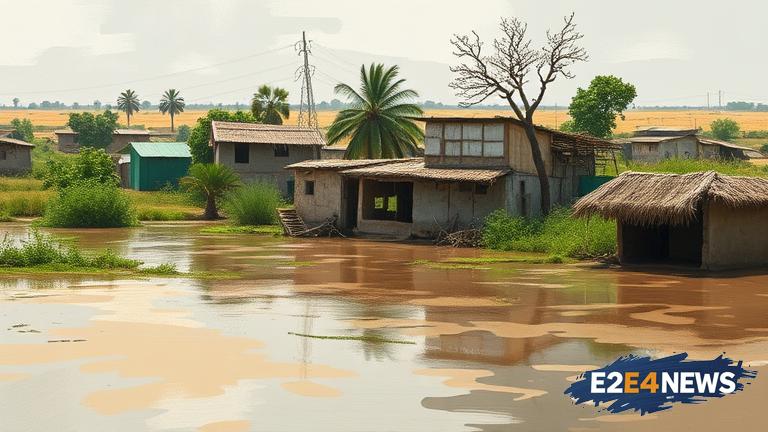Pakistan is grappling with a severe climate crisis, with farmers struggling to cope with the unpredictable and extreme weather conditions. The country has witnessed devastating floods in recent years, with the 2022 floods being one of the worst in its history, affecting over 33 million people and causing widespread destruction. However, just a year later, the country is facing a severe drought, with many areas receiving below-average rainfall. This erratic weather pattern is taking a toll on the country’s agricultural sector, with farmers facing significant losses and struggling to make ends meet. The floods have destroyed crops, livestock, and infrastructure, while the drought has led to water scarcity and reduced crop yields. The climate crisis is not only affecting the farmers but also the overall food security of the country. Pakistan is an agricultural country, and the sector contributes significantly to its economy. The government has been criticized for its inadequate response to the climate crisis, with many arguing that more needs to be done to support farmers and mitigate the effects of climate change. The country’s agricultural sector is also facing other challenges, including soil degradation, water pollution, and lack of access to credit and markets. The farmers are also struggling with the increasing cost of inputs, such as seeds, fertilizers, and pesticides, which is further exacerbating their financial woes. The climate crisis is also having a significant impact on the country’s rural economy, with many farmers being forced to migrate to urban areas in search of work. The government has launched several initiatives to support farmers, including the provision of seeds, fertilizers, and other inputs, as well as cash assistance to those affected by the floods and drought. However, more needs to be done to address the root causes of the climate crisis and to support the country’s agricultural sector. The international community also needs to play a role in supporting Pakistan’s efforts to mitigate the effects of climate change. The country needs significant investment in climate-resilient infrastructure, including dams, canals, and irrigation systems. The government also needs to implement policies to reduce greenhouse gas emissions and promote sustainable agriculture practices. The farmers also need access to climate information and early warning systems to help them prepare for extreme weather events. The climate crisis is a global problem, and it requires a collective response. Pakistan’s climate plight is a wake-up call for the international community to take action to address the climate crisis and support countries that are most vulnerable to its impacts. The country’s farmers are resilient and resourceful, but they need support and assistance to cope with the challenges posed by climate change. The government and the international community must work together to address the climate crisis and ensure that Pakistan’s agricultural sector is able to thrive and contribute to the country’s economic development. The climate crisis is not just an environmental issue, but also a humanitarian and economic one. It requires a comprehensive and coordinated response to address its impacts and to support those who are most affected. Pakistan’s climate plight is a reminder that climate change is a global problem that requires a global response. The country’s farmers are on the frontlines of the climate crisis, and they need our support and assistance to cope with its impacts.
